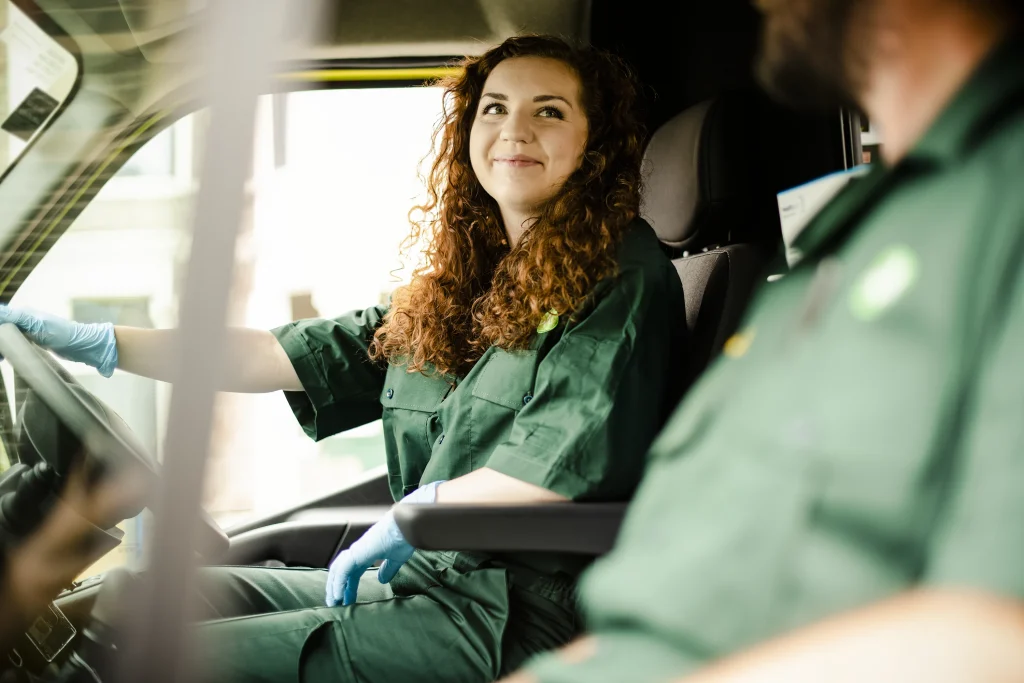Level 3 Award in First Aid at Work (RQF)
This Ofqual regulated qualification is aimed at people in the workplace nominated to be First Aiders. Due to it’s standardised content and delivery, it is also useful to a wider audience including those working in security, voluntary or community roles and activities; or those who are required to help others in a range of first aid situations.
If you require a more advanced or in-depth training course, have a look at our regulated pre-hospital care qualifications that expand the breadth of training and knowledge to widen your scope of practice as a responder.
About the course
Delivered over a 3 day period, learners are introduced to a range of incidents and situations they could potentially be required to deal with in their role or remit.
Successful learners will be able to respond promptly to first aid situations, to provide safe and effective first aid treatment in a prompt manner.
The content and guidelines follow currently accepted practice and guidelines from organisations and groups such as:
- The Resuscitation Council (UK)
- First Aid Awarding Organisation Forum
- Voluntary Aid Societies
- Distinguished panel of experts in emergency medical care.
The qualification addresses workplace requirements in Northern Ireland (and UK) for employers to meet their obligations under
- Health and Safety Executive (HSE) training standard for delivery of First Aid at Work (FAW)
- The Health and Safety (First Aid) Regulations (Northern Ireland) 1982
- (as amended)
- The Health and Safety (First-Aid) Regulations 1981
- (as amended)
Course entry requirements
There are no formal entry qualifications; however learner expecting to gain the regulated qualification must:
be able to complete a range of practical exercises on the floor
be able to complete a minimum of 2 minutes of CPR
at least 14 years old on the first day of training
Learners who do not meet the requirements of the regulated qualification can be issued a certificate of attendance.
Certificates will clearly state that it was attendance only, and not suitable evidence to cat in the capacity of a first aider in the workplace.
This does not detract from anyone requiring additional support or requirements; more information is contained within our centre policies
Course content
Over 3 days, learners will be introduced to
- Preventing cross infection
- Recording incidents
- Safe use of equipment
- assessing an incident
- Summoning assistance
- Prioritising treatment
- Dealing with post incident requirements
- Personal Protective Equipment (PPE)
- Hand Hygiene
- Safe disposal of waste
- Using appropriate dressings
- Barrier devices & rescue breaths
- Covering your own cuts and wounds
- Gaining consent
- Implied consent
- Checking for danger
- Identifying numbers of casualties
- Evaluating what happened
- Prioritising treatment
- delegating tasks
- Danger
- Response
- Airway
- Breathing
- Circulation
- Shouting for help
- Calling 999/112
- Leaving the casualty to call emergency services
- Sending bystanders to call emergency services
- Calling NHS emergency helpline such as 111
- detail
- detail
- detail
- detail
- detail
- detail
- detail
- detail
- detail
- detail
- detail
- detail
- detail
- detail
- detail
- detail
- detail
- detail
- detail
- detail
- detail
- detail
- detail
- detail
- detail
- detail
- detail
- detail
- detail
- detail
How the course is assessed
Learners are assessed by formative and summative, assessments conducted by your facilitator, an independent assessor and online electronic exams taken under exam conditions.
Formative Assessments:
Formative assessments are an ongoing, overall observation of your skills, abilities, attitudes and working practices; this is done by your facilitator throughout the course to ensure that you have the right attributes appropriate to the role.
Even if you pass all assessments, you still need to demonstrate to your facilitator that you are responsible and capable of the role, otherwise you could still be referred
Summative Assessments:
Summative assessments are final assessments of skills where you have opportunity to demonstrate to your facilitator that you have learned the required knowledge, either by demonstrating activities such as:
- Vehicle Daily Inspection
- Pre Driving Checks
- Reversing and Maneuvering
- Route Planning
- Night Driving
- Emergency Call re-prioritisation
Invigilated Exams:
There are three multiple choice question examinations conducted under exam conditions throughout the course including
- Traffic Signs, Road and Vehicle Markings (MCQ 1)
- Theory before on road training at speed (MCQ 2)
- Legislation, Highway Code and Roadcraft (MCQ 3)
Final Independent Driving Assessment
Once you have completed the course requirements; a final driving assessment is undertaken by an independent driving examiner.
This lasts for (at a minimum) an hour, and covers both routine and emergency response driving, where your driving standards are observed throughout, across various types of roads, including urban, rural, city centre and motorway / multi-lane roads.
Much like a normal driving test, the examiner will only provide directions and when you have received your emergency call, or stood down from your emergency call.
What your course fees cover
You are not paying for a certificate or qualification, your course fee does not entitle you automatically to a qualification or certificate
Your course fees allow you to access and participate on a course of study that may lead to the achievement of a qualification at the end. Whether this happens or not depends on you successfully achieving the assessment criteria laid out in the qualification specification. Your course fees cover the following:
- Access to 120 guided learning hours on the course with one of our facilitators
- Registration fee with the Awarding Organisation (FutureQuals)
- One attempt at each Multiple-Choice Question Paper (MCQ) as timetabled
- Two submissions for the review of written work products (including diaries)
- Assessment and sign off of your portfolio (By Group or Cohort) *
- Quality Assurance of your portfolio (By Group or Cohort) *
- Electronic Certificate (E-Certificate)
For the duration of your qualification you will have access to our Microsoft Office 365 platform which will provide you with:
- Office 365 Licence:
- Access to online versions of the Microsoft Office Suite
- Access to your Portfolio
- Access to Electronic course materials (Textbooks etc)
Certification
Successful learners will receive a Regulated Level 3 Award in Emergency Response Ambulance Driving (RQF) e-Certificate.
Certifcates can be validated on the Awarding Organisation websites


£Detail+ VAT
Pay a deposit to secure your place
Course Summary:
Regulated RQF Qualification
Classroom / Blended
18 hours
20 hours
3 Years
Course Delivery Options
Full Time:
3 Consecutive Days (usually 0930 – 1630.
Flexible start and finish times can be negotiated for groups to meet working or shift patterns
All learners start and finish at the same time
Part Time:
Mixture of days or evenings to total 18 hours.
This could include evenings or weekends
Chat to us about your requirements and we can devise a schedule to suit your group and their availability.
Blended:
If your availability doesn’t fit into the options above, we can use blended delivery options.
Online blended can be used within strict guidance, a maximum of 1/3 of training can be delivered online.
Learners who do not use blended online effectively and retaining the information delivered during the sessions are at risk of failing classroom assessments.


